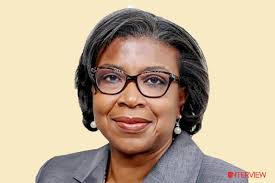
In a bid to address the infrastructure challenge bedevilling the country, the Debt Management Office (DMO) on Tuesday disclosed that the Federal Government would float over N100 billion third Sukuk Bond before the end of 2019.
Ms Patience Oniha, DMO’s Director-General, stated this at inaugural edition of the Islamic Finance Network (IFN) Nigeria Forum organised by the Nigerian Stock Exchange (NSE) in partnership with REDMoney Group in Lagos.
Oniha said the government was perfecting arrangements to float over N100 billion Sukuk Bond for the financing of some infrastructure projects listed in the 2019 budget.
Sukuk are bonds structured to generate returns to ethical investors without infringing on the Islamic law, which forbids interest payments.
“It represents an ownership interest in the asset to be financed rather than a debt obligation.
“It will be this year 2019 by God’s grace because the budget has been approved.
“The projects would be those included in the budget and the borrowing will also be what has been approved in the budget, as part of new domestic borrowing. So, it will be this year,” Oniha said.
She said the government was eager to use borrowing to finance infrastructure, which was what the Sukuk represented.
On the specific amount to be raised, Oniha said the DMO had to issue an amount that the market could absorb.
“Once the advisers can give us an indication of an appetite about them, I have asked them if they can raise N200 billion for instance. It depends on what is on the table.
“We have to issue an amount that the market can absorb, that we are sure we can raise. Then the remaining we can do our regular FGN bond in the domestic market.
“So in summary, we are happy to do more than a N100 billion once we are sure there is demand at a price that compares with that of a similar FGN bond,” she said.
On the listing of the second N100 billion Sukuk Ijarah Bond on the NSE and FMDQ OTC Securities platforms, Oniha said it would be listed in July.
She said the bond floated in December was yet to be listed on the NSE and FMDQ OTC Securities platforms because of allotment and ground breaking issues.
The director-general said the DMO needed to ensure allotment to all successful parties as well as commencement of the infrastructure projects before applying for the listing of the bond.
“There are two conditions and I believe those two conditions have been met and we would list shortly.
“Once we agree, you know FGN securities are listed on two trading platforms, so once the other platform says we can list and trading will start without necessarily having an official ceremony we will do that.
“And I think we should be looking at July for the listing,” she added. Also speaking, Mr Oscar Onyema, NSE’s Chief Executive Officer, said the the Islamic Finance sector had grown noticeably over the years, from about 1.5 trillion dollars in 2016, to about 2 trillion dollars in 2018.
Onyema, represented by Mr Jude Chiemeka, Divisional Head, Trading Business, NSE, said the figure was driven by growth in Islamic Banking assets as well as growth in Sukuk issuances.
“This growth has largely been concentrated within Gulf Cooperation Council region and in Asia.
“However, recent data suggest that Islamic financing is beginning to take root in Africa, with issuers across Gambia, Sudan, Senegal, Ivory Coast, Togo as well as Nigeria, in more recent times,” Onyema said.
He noted that Islamic Finance represented a turning point and a new paradigm for the financing of infrastructure in Nigeria.
“In 2013, for example the Osun State Government issued an N11.4 billion, 7-year Sukuk instrument used to finance the construction and rehabilitation of 27 schools in the state,” he said.
Onyema, however, applauded the Federal Government, DMO, the Securities and Exchange Commission and National Pension Commission for showing unwavering commitment to the deepening and growth of Islamic Finance in Nigeria.
The News Agency of Nigeria (NAN) reports that the conference had its theme as: “Harnessing the Islamic Finance Sector for Infrastructure Development and Economic Growth.” (NAN)




telegram中文版提供中文版本的Telegram下载。不仅有pc电脑桌面版,还有苹果手机和安卓APK版本可供选择。纸飞机app是一款超10亿用户的聊天应用,其卓越的安全性和稳定性深受用户青睐。